Citrus expedition
We’ve had a lot of great launches on the Marketplace this year, but this one is huge. Unlike our usual articles where we introduce you to a single partner farm or topic, this week we’re doing a deep dive into an entire industry. We’ll bring you on a journey to the citrus groves of Florida, as seen through the eyes of Mo (our co-CEO) and Fadi (Mo’s brother and our resident photographer). We’ll tell you why we went to Florida and what we brought back with us. We’ll explore the responsible citrus industry and the challenges it faces, hearing stories from the amazing people who’re fighting the good fight to grow fruit responsibly. These individuals are looking to the past - heritage ways of growing citrus that never relied on pesticides - to bring hope for the future.
The Locavore’s Dilemma
Back in July, we asked all of you what you craved most on the Marketplace. The response was unanimous: more fresh fruit. This will be our fourth winter delivering baskets, and we really wanted to up our fruit game this year. In Quebec, most winter fruit comes from far away. The citrus you’ll find in supermarkets is, at best, from California, but more often from even farther away, like South Africa. This fruit has to travel over long distances, through shipping containers and cold storage warehouses, so it’s grown to be durable, not delicious.
“We had an orange tree in our backyard back in Lebanon and I still remember the smell of citrus when you break the leaf - the taste of heavenly juicy and incredibly sweet fruit,” Mo recalls. “Year after year, I’ve been searching for that same taste and smell.” In October, Mo began his mission to recapture those childhood memories and finally bring citrus to the Marketplace.
.jpg)
If we were going to provide winter citrus to Lufavores, Mo knew it would have to be as local as possible; responsibly and transparently produced by family-owned farms; incredibly fresh; and the most delicious, life-changing fruit he could find. There was one other important requirement: he had to meet the farmers in person, and they’d have to be willing to say “Bonjour Lufavores!” into Fadi’s camera. And so, they set out to Florida.
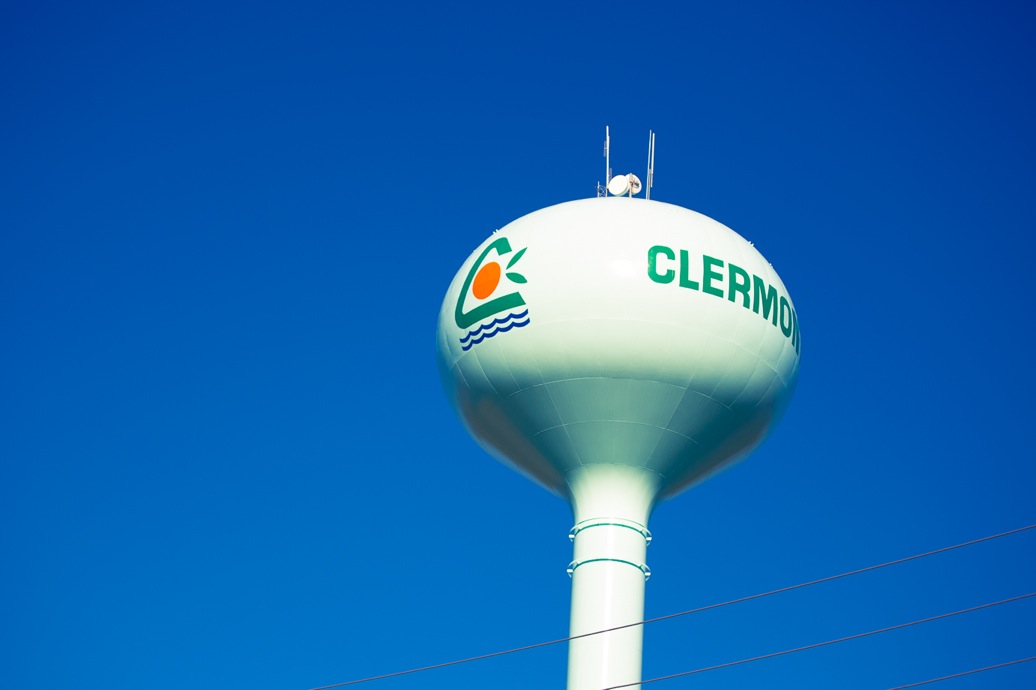
So what does this mean for locavores? Eating local is a challenge, and always has been. For certain day-to-day foods, such as coffee and olive oil, it’s more than a challenge - it’s next to impossible. We strive to provide diverse varieties of fruits and vegetables all year long - and citrus is no exception. And when grown properly, a fresh orange or tangerine will never fail to brighten up your day - or help get you through long Canadian winters. We wanted to be able to put a couple of oranges and tangerines in your baskets for the holiday season, but we had to figure out how to do it in a sustainable way.
Florida has a reputation for growing unbelievable citrus, the best and sweetest you can find. However, you won’t find these fruits in Montreal supermarkets right now. There’s a reason we don’t have Florida fruit in Quebec: transportation. Finding a way to bring the fruit here is as tough as finding the right farmers to work with. To get these treasures to Montreal in the most sustainable way possible, Mo and Yoland found a Quebec shipping company that travels to Florida for deliveries. That way, they can bring the fruit back up on the necessary return trip.
Mo started doing research and discovered that there are a few dozen responsible citrus growers in Florida. After speaking with all of them, there were three who stood out: Uncle Matt’s Organic, Eagle’s Nest Farm, and Spooner’s Organic. “Finding the right organic citrus farm is like finding a needle in a haystack,” says Mo. “It was tough: I called so many, and finally came down to these three exceptional people.”
Mo knew that he would have to go meet them, and (most importantly) taste their citrus. So he booked his flight, and brought Fadi along for a little citrus treasure hunt.
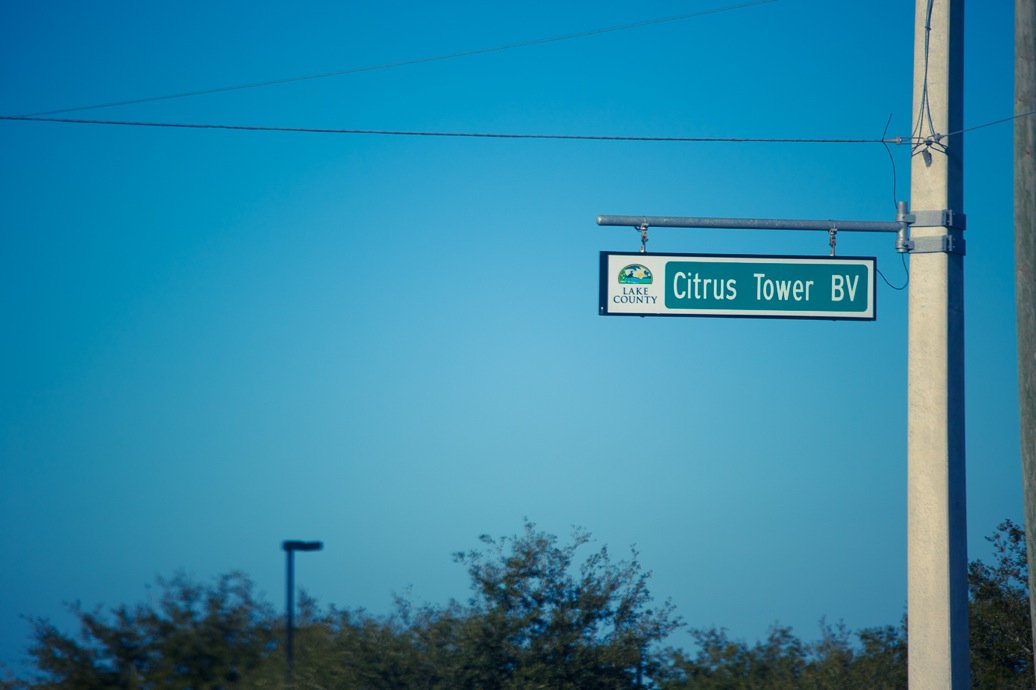
Fadi and Mo spent two days heading from coast-to-coast in central Florida, visiting each farm. What started out as a relationship-building expedition, quickly turned into a crash-course on the trials and tribulations faced by those in the responsible citrus industry.
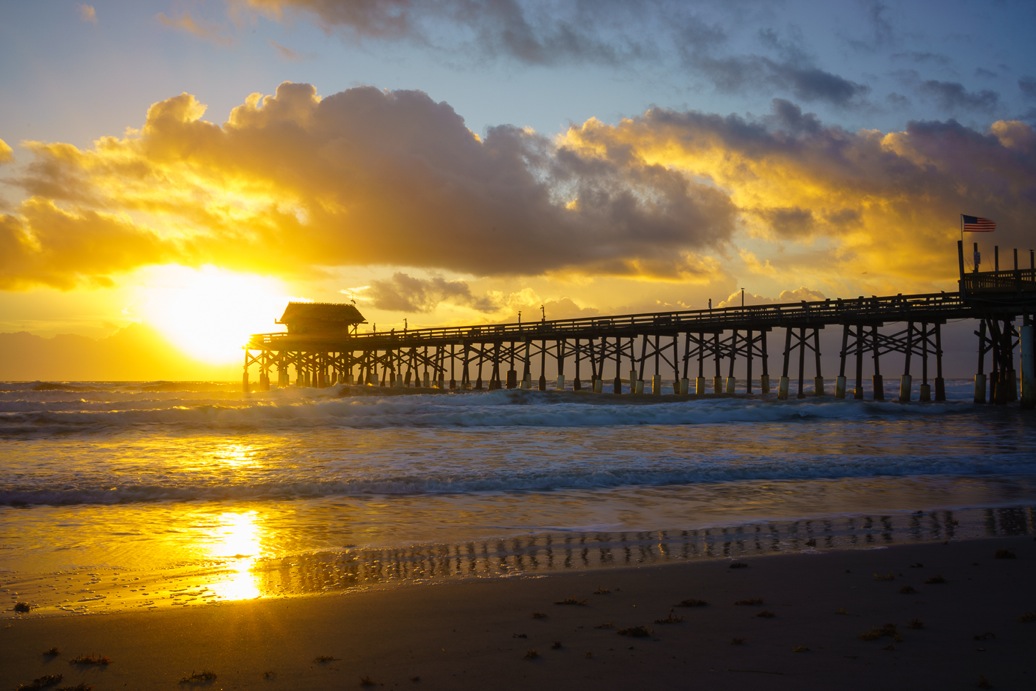
An Industry in Crisis
Although the demand for responsible orange juice is high, its growth belies the problems that all Floridian citrus growers have to grapple with: citrus greening. First appearing in 2005, greening is a disease that was spread by an insect called the Asian citrus psyllid. It causes certain branches to produce small, misshapen fruit, and over the last decade, has reduced yields by half. “It’s killing the trees,” Matt McLean of Uncle Matt’s told Mo. Matt’s father, Benny McLean, showed Mo entire groves that had been affected, many of which had been outright abandoned by farmers. Good fruit from unaffected trees was being left to ripen and fall on the ground.
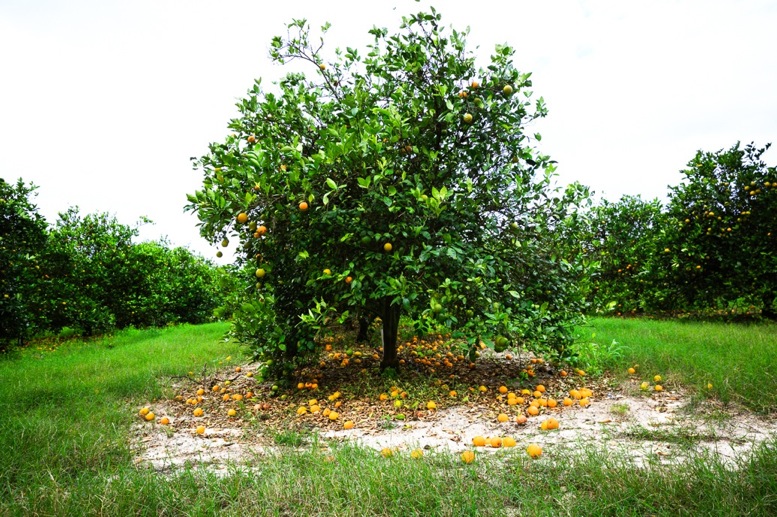
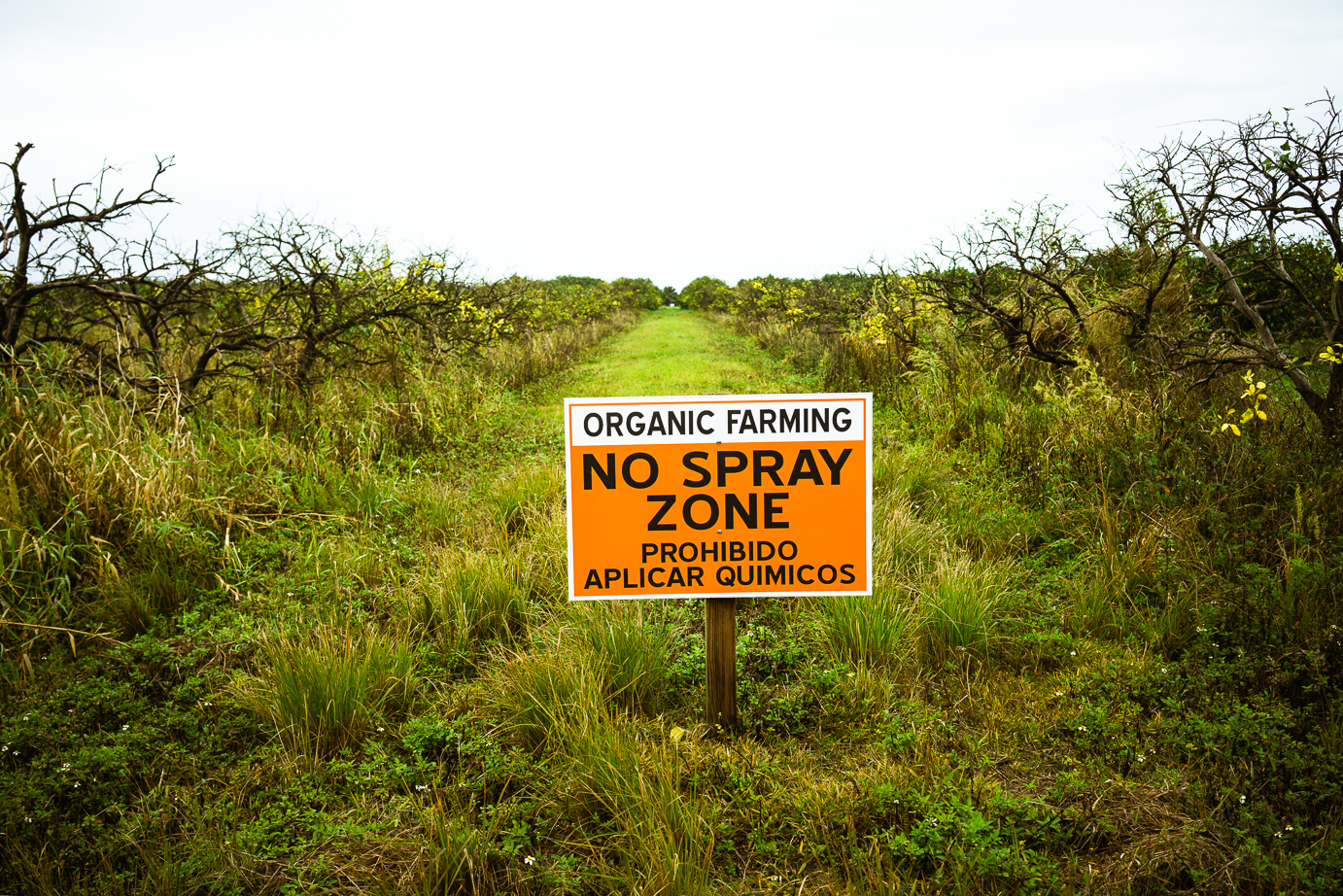

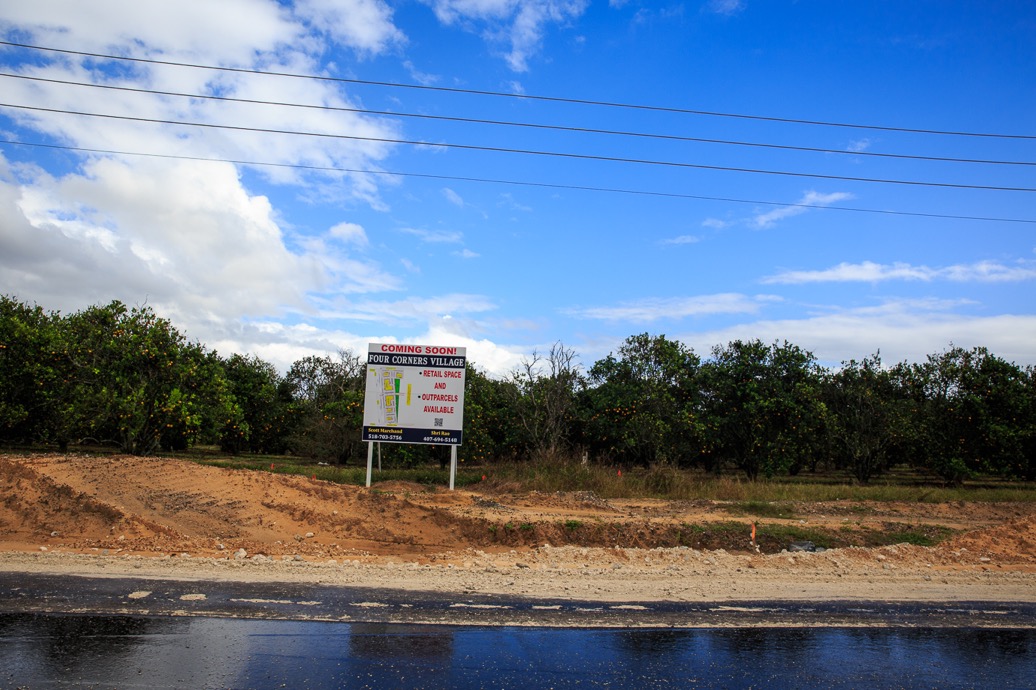
At the same time, growers are finding it more and more difficult to compete with South African and California citrus. Between greening and catastrophic weather events - such as a freeze in the 1980s that caused all packing houses except for Mary Mitchell of Eagle’s Nest Farm to leave the area - farmers face an uphill battle to eke out a living. As Fadi and Mo travelled the region, they noticed there were real estate signs on countless groves. Commercial developers typically make offers on land when the owners have a bad year, with the goal of turning them into commercial spaces like megamalls.
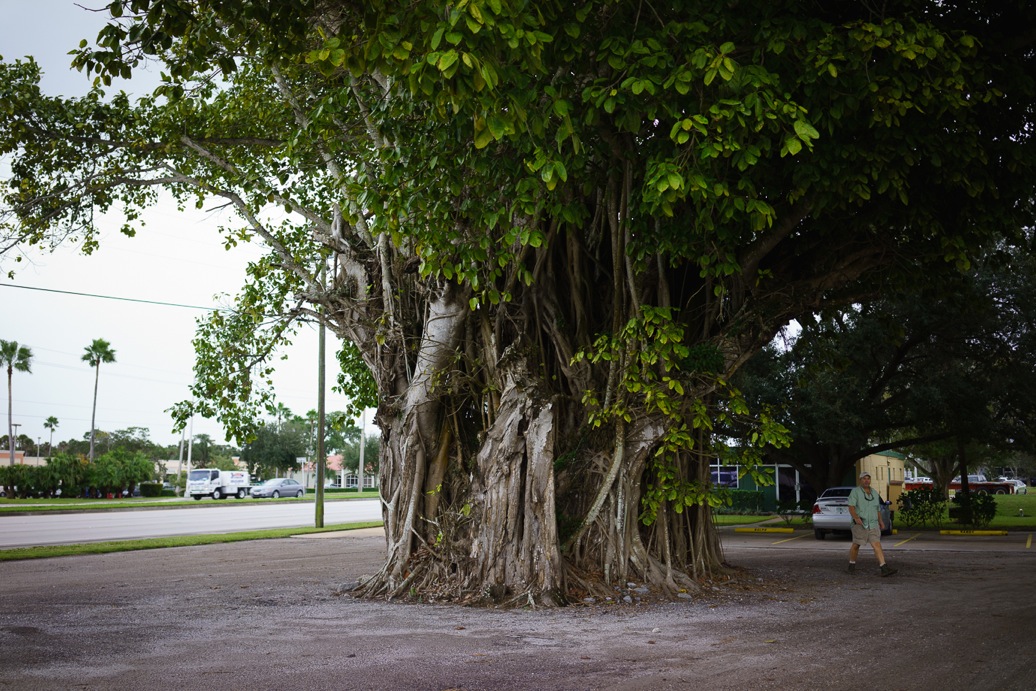
This is an industry in jeopardy. Florida citrus could soon be a delicacy, but for now we want to bring these fruits to you, helping support its courageous growers and working to keep their farms alive. To do this, we’re building relationships with Matt, Mary, and Kevin Spooner of Spooner’s Organic. Mo chose these three growers for stellar reputations. The responsible citrus industry feels like a mini world of its own, where everyone knows each other. Every farmer has their own story, but they all have one thing in common: a true passion for their fruit.
Visiting the Farms
Uncle Matt’s was the first stop on Mo and Fadi’s trip. Matt McLean is an actual uncle of ten nieces and nephews, but he’s also a farmer with a long history of passion for growing oranges. He founded Uncle Matt’s Organic in 1999 after receiving a degree in business administration from the University of Florida. One of the highlights of the trip was getting the chance to taste Matt’s pomelos. Pomelos are the giant, sweeter cousins of grapefruits and a favourite of Mo’s from childhood, and let us tell you, Matt grows them perfectly.
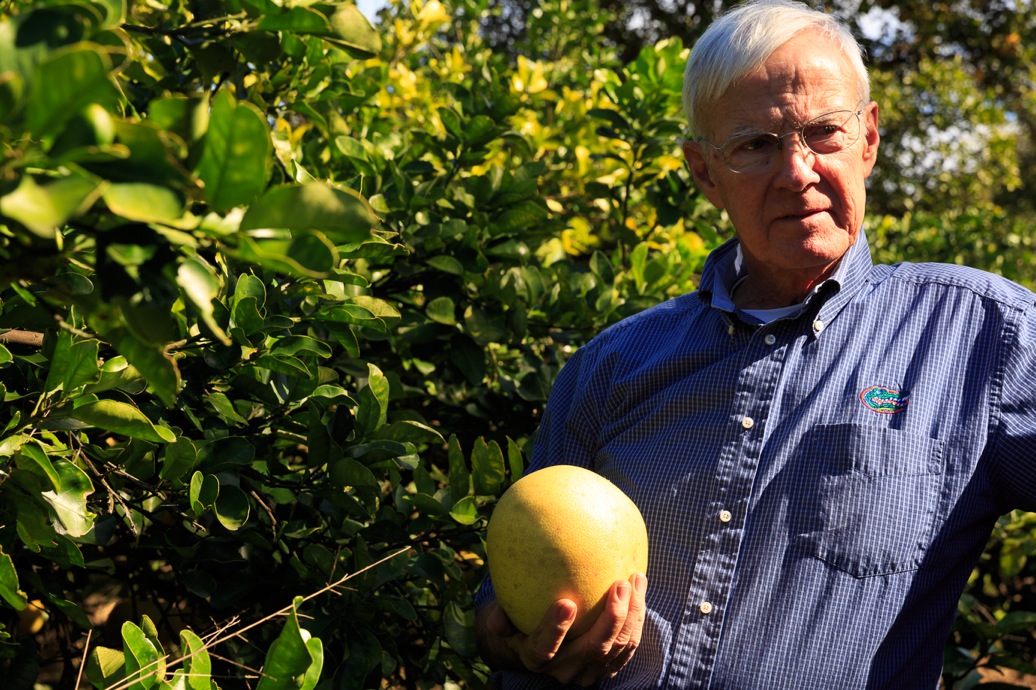
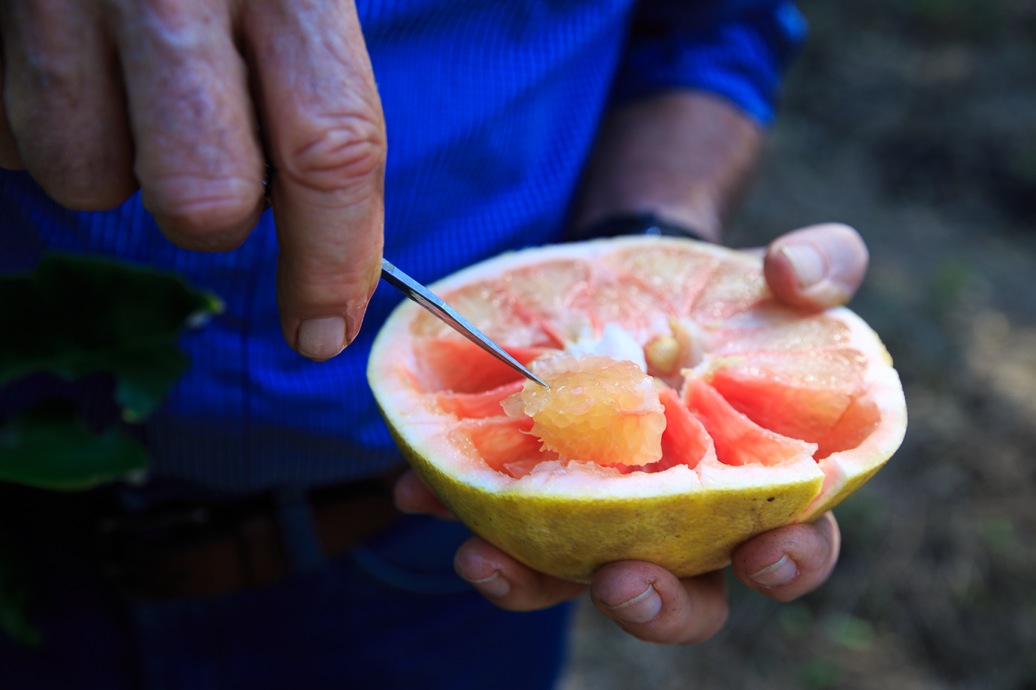
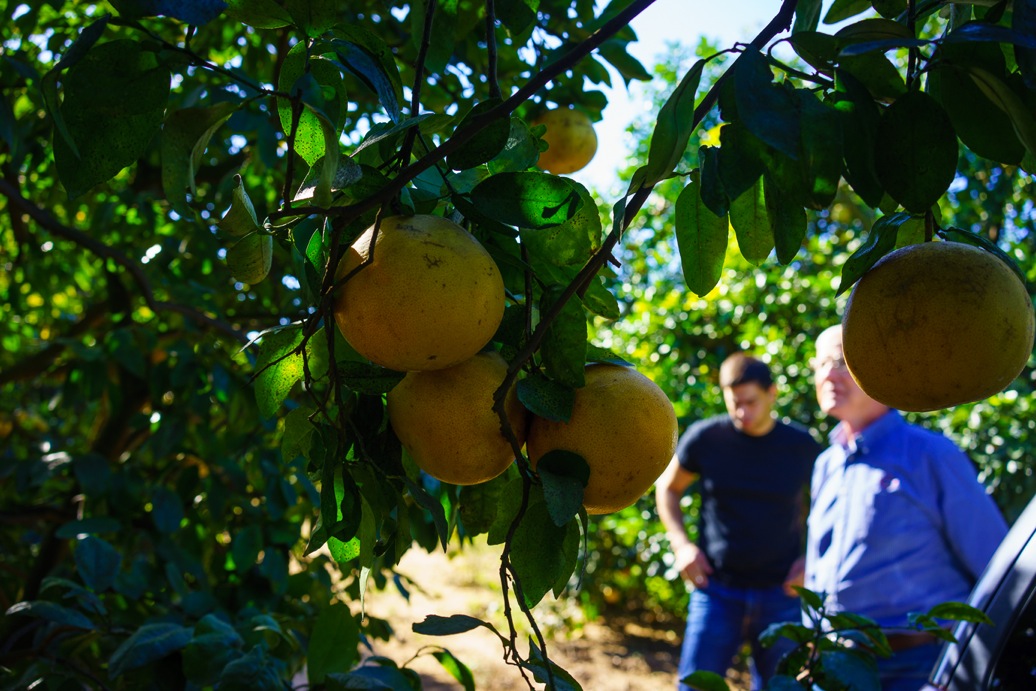
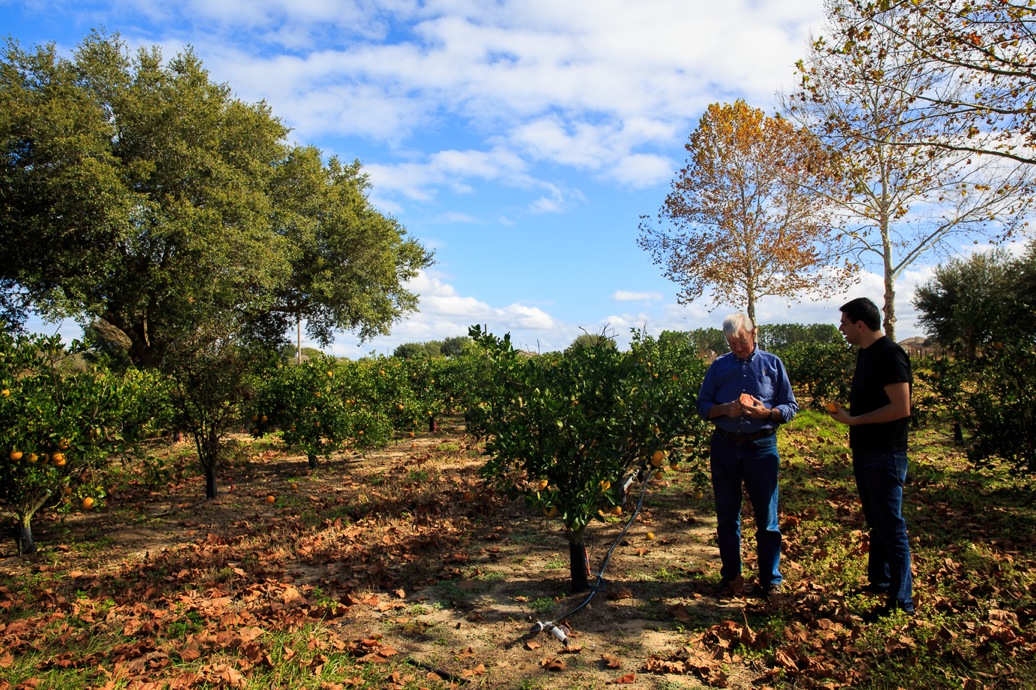
Next up, Mo and Fadi met with Kevin from Spooner’s Organic. Kevin Spooner takes his fruit very seriously. He actually walks around with a brix scale to constantly measure the sweetness of all of his citrus (fruit is normally graded based on its sweetness and acidity).
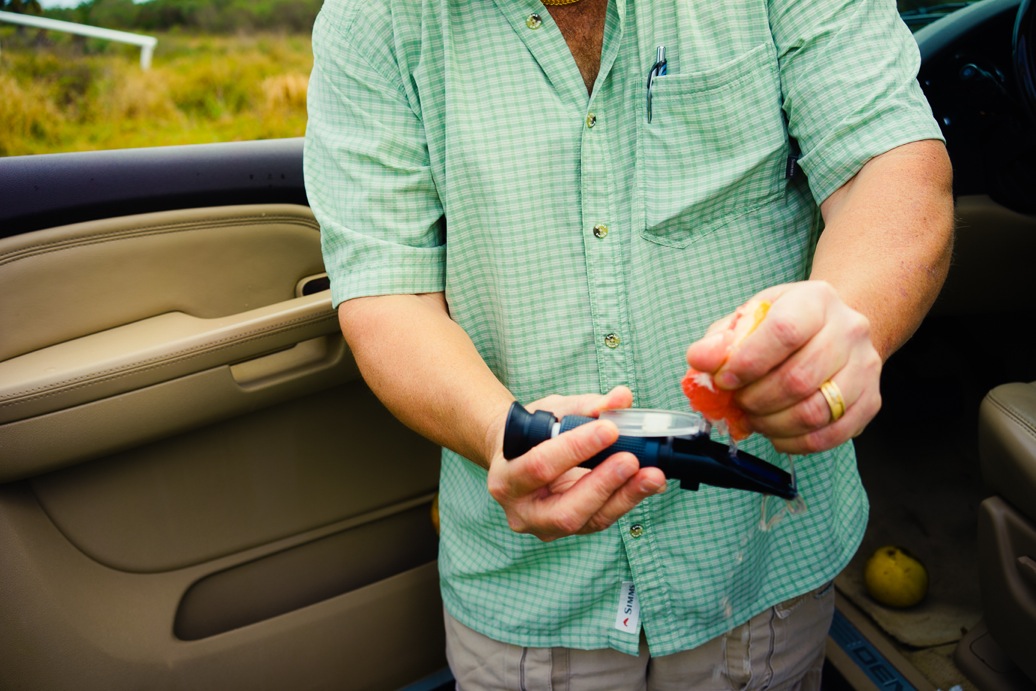
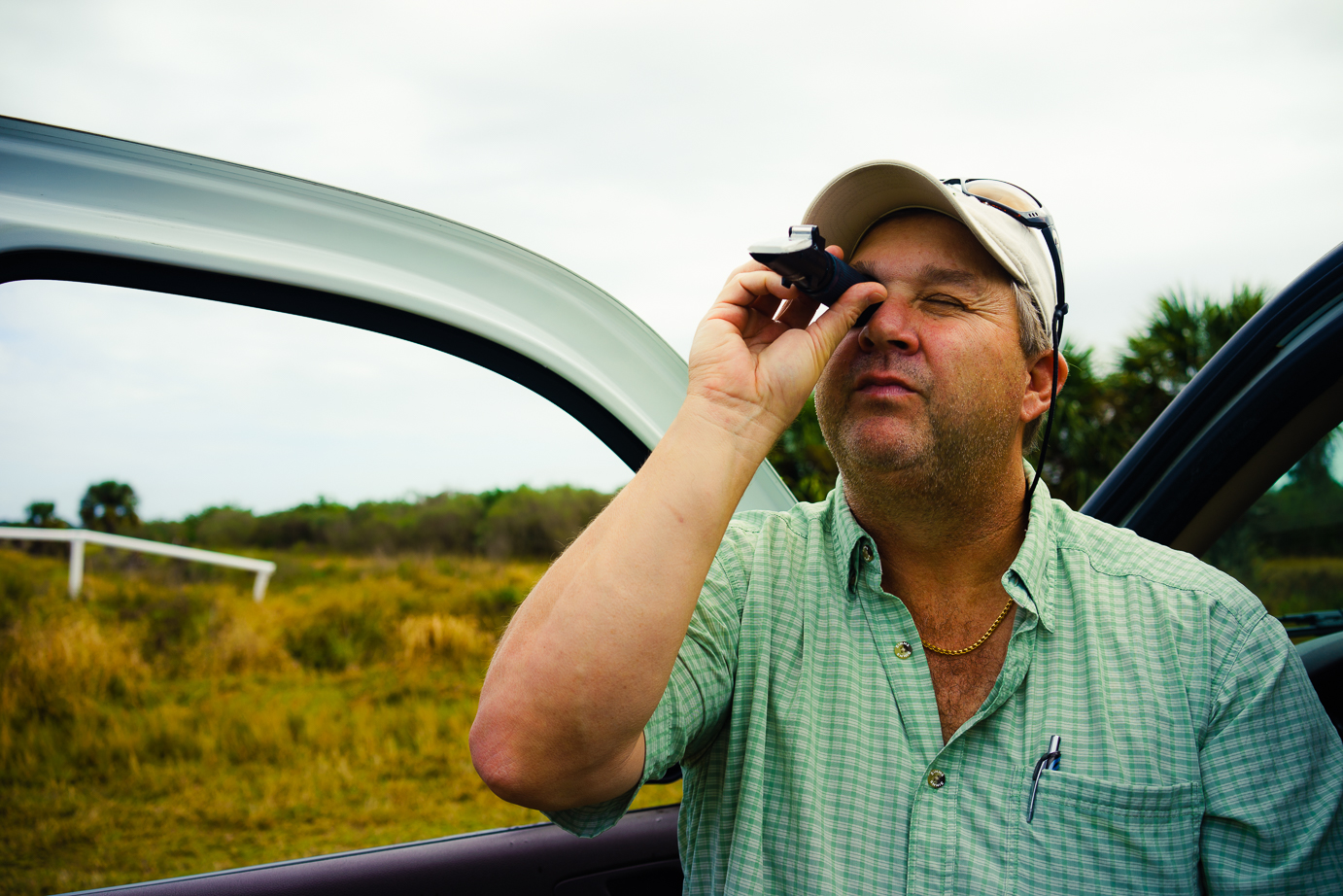
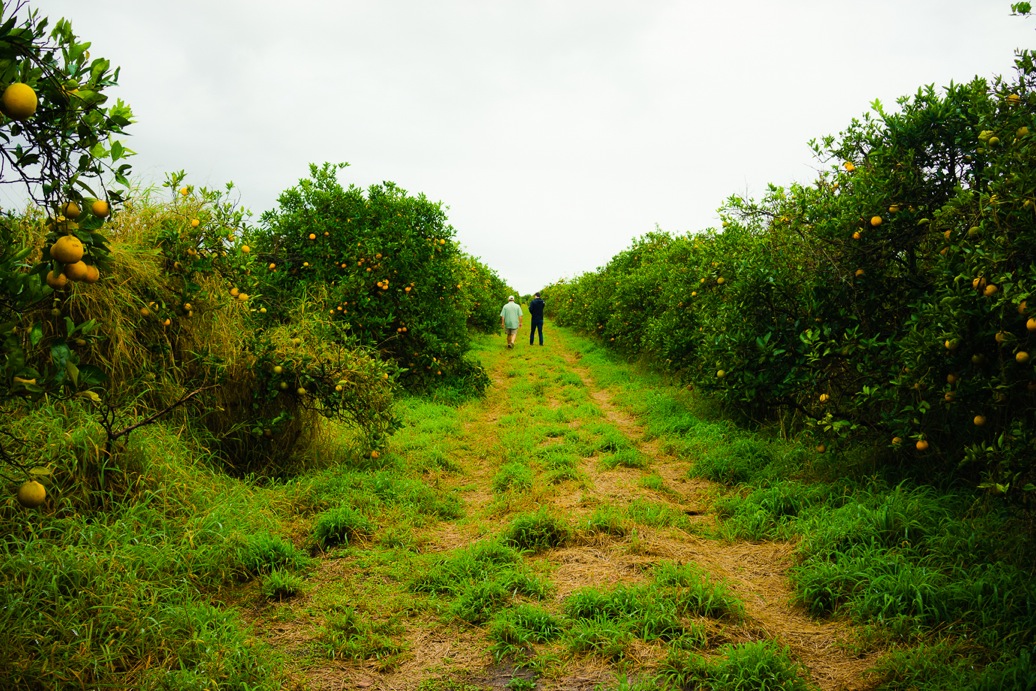
The final farm on Mo’s list was Eagle’s Nest. Mary waits until very late in the season to harvest to ensure that her oranges are as sweet as possible. Although she was away at the time of the trip, Mo spoke with her by phone.
Her farm’s name comes from the 50s, when she noticed two eagles land on a tree in the area, and make a nest. Around this time, Mary and her husband Rod also landed on the farm, finding it to be a peaceful and welcoming space.
Mary is highly respected in the organic citrus world. Both Kevin and Matt showered her with praise in their conversations with Mo. (“Mary is small and does the best job that anybody could possibly do,” according to Kevin.) She paved the way for responsible citrus production and is known for her tough character. She runs the last remaining packing house in Putnam County after the 1983 freeze forced other operators to relocate further south. Even after Mary divorced her husband, they continued working together because she refused to abandon her grove.
The Fruit
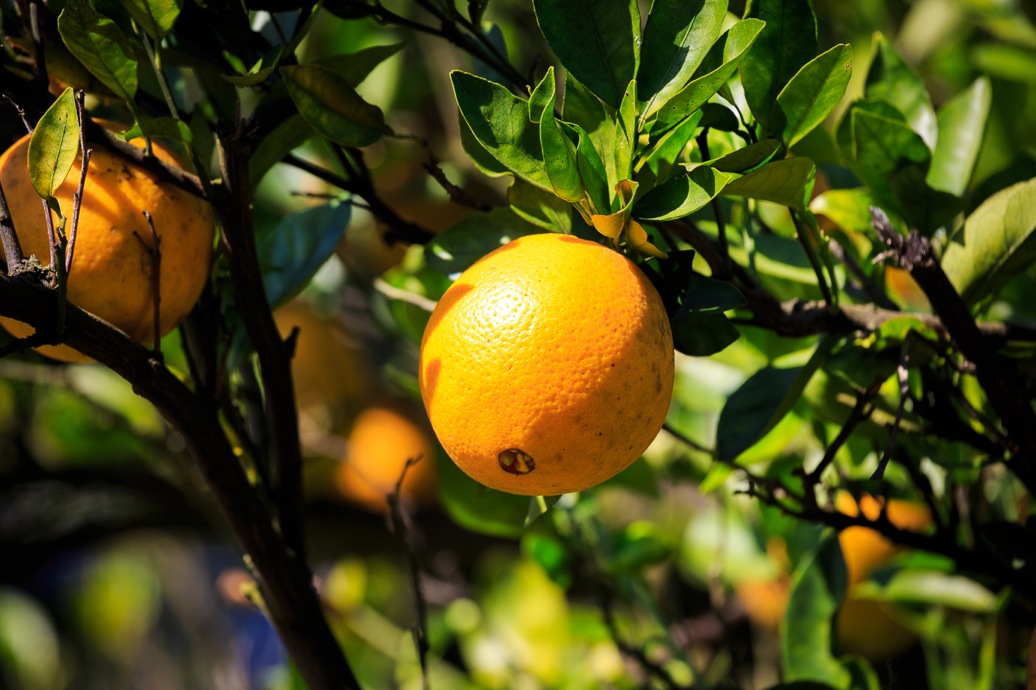
Although it grows in a warm climate, Florida citrus is nonetheless seasonal, and different varieties will be available depending on the month. In December, Matt is harvesting navel, cara-cara, hamlin, and satsuma (mandarin) oranges, as well as sunburst tangerines and Orlando tangelos. Oranges are not all created equal: hamlins, for instance, are a high-yielding, sweet variety tolerant to colder temperatures (not quite Quebec-cold, but still); cara-caras, by contrast, are pinkish-red and have an almost cranberry-like tartness. Kevin grows other varieties, such as pineapple oranges, which are known for their intense sweetness and juiciness, making them a natural fit for juicing.
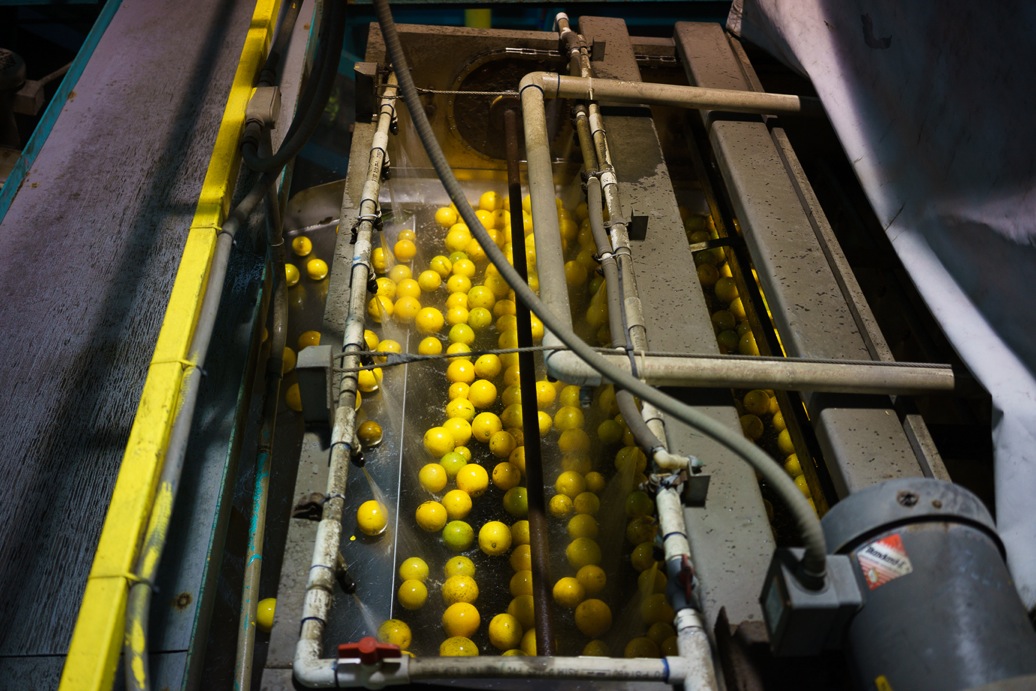
For all three growers, the process of picking and preparing fruit is similar. At the Eagle’s Nest packing house they wash, pick, and package all their own fruit, in addition to the fruit for a handful of other farmers in the area.
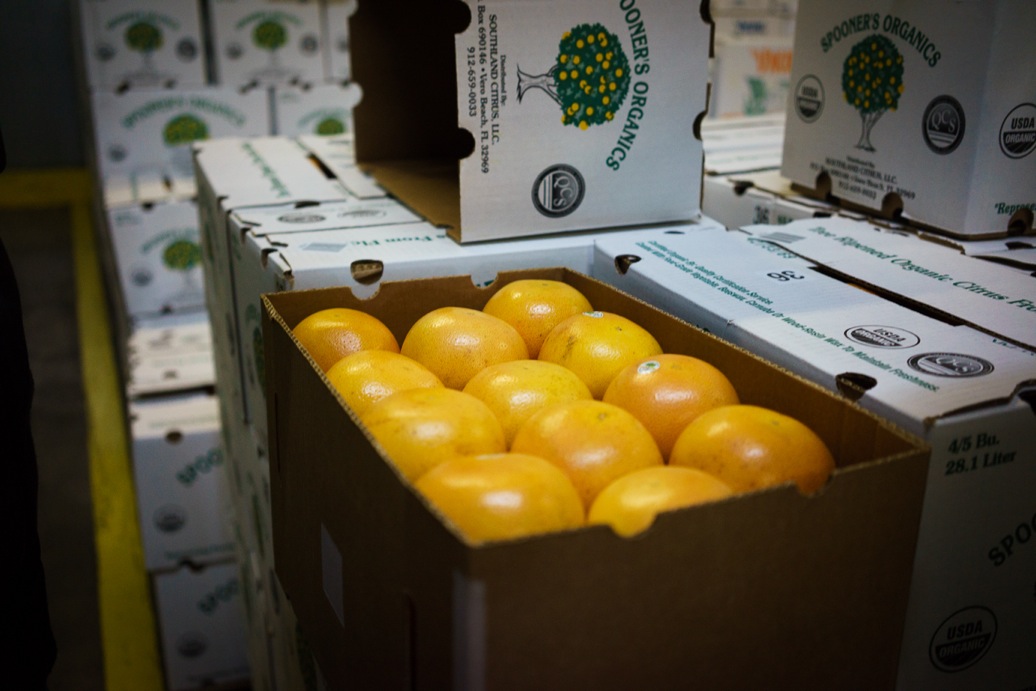
Looking Ahead
Despite the challenges that the industry faces and the nigh-insurmountable threat of greening, Matt, Kevin, and Mary all remain optimistic. Kevin referred to something called natural resistance. “Back in the days, all of the conventional growers were laughing at my groves because I had weeds and bugs,” Kevin told Mo. “Sure: it doesn’t look as appealing as perfectly aligned rows of trees at conventional citrus farms, but I knew I was doing the right thing. Today no one is laughing.”
.jpg)
The responsible farmers Mo was fortunate enough to get to know all noticed that when they eliminated the use of synthetic pesticides and other harmful substances, birds and beneficial insects would return to their farm. This ecosystem makes their groves naturally more resistant to weather and other harmful conditions. “We’re growing the way our grandfathers did in the 1950s. Hopefully this will help the trees fight greening,” Kevin said. He is optimistic that, by growing in the right way, everything will be sorted out on its own given time.
.jpg)
Matt and Benny believe in a more proactive approach. They carefully monitor and engage with R&D projects at Florida State University and the University of Florida that are showing promise. These researchers look at the root systems of trees that have proven resistant to greening, trying to figure out the source of their defence.
.jpg)
Mary, true to her character, simply won’t give up. “We survived the freezes of the 1980s, when everyone left, and even during times of lower production we did okay,” she told Mo when they spoke. Life experience tells her that things will always get better, even if it’s hard to believe during the tough times.
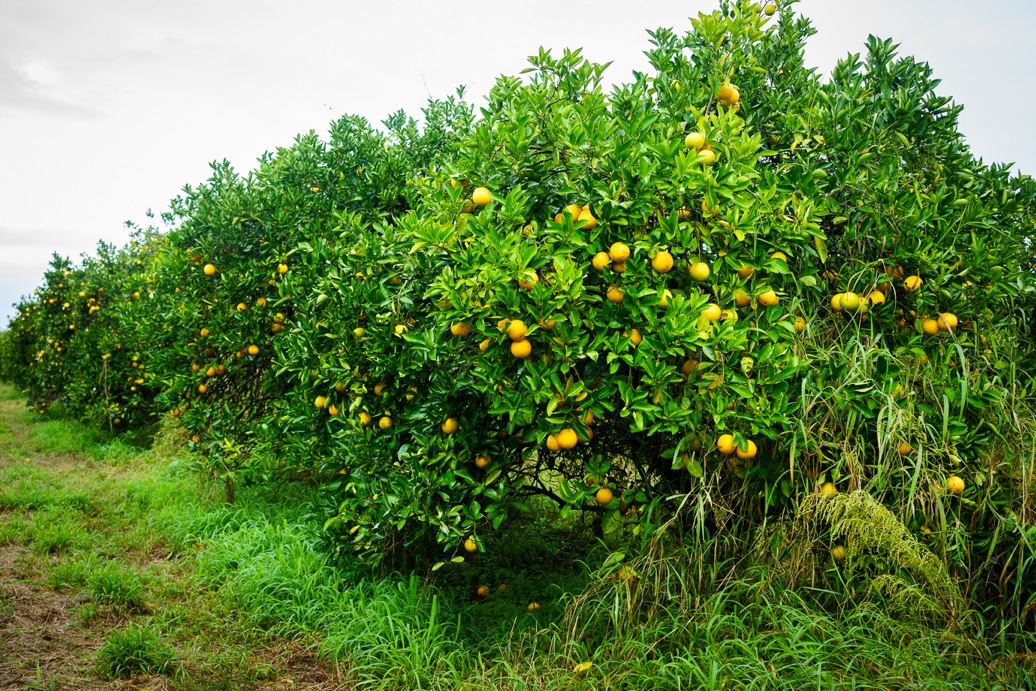
Back North
So yes, slowly but surely, we’ll start getting the freshest, sweetest fruit for you this winter. Mo and Fadi brought some samples back with them, which the whole Lufa Farms team promptly devoured. These are true treasures, imbued with the passion and responsible vision of Mary, Kevin, Matt, and their teams. The first full batch for your baskets - from Uncle Matt’s - arrived yesterday.
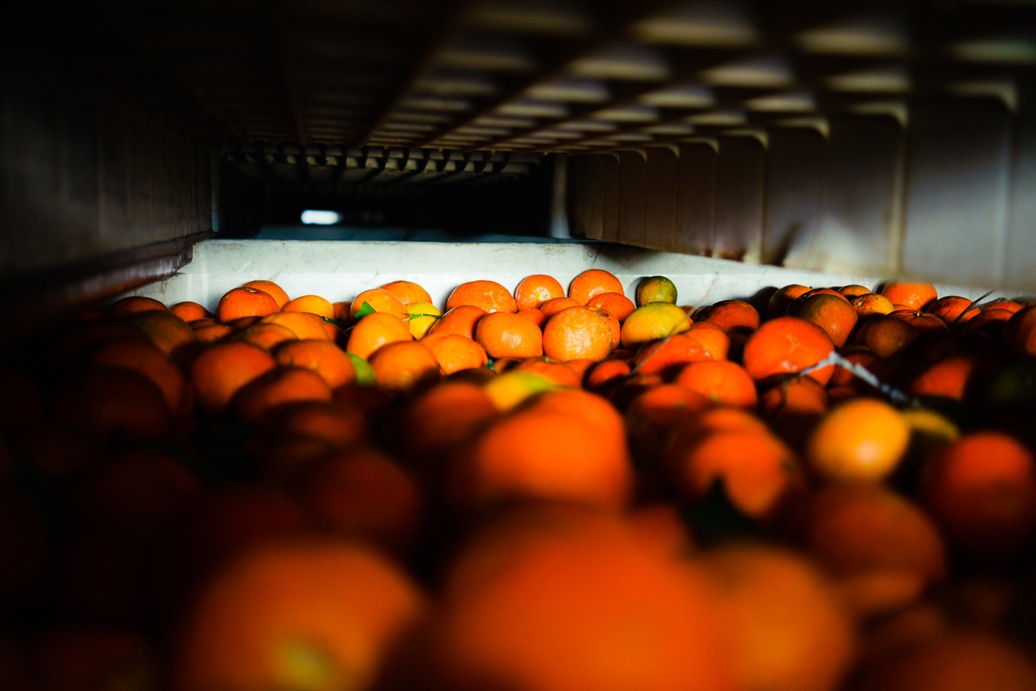
We grow food where people live and grow it more sustainably. But we also care deeply about forging relationships with farmers who are doing great things: growing incredibly delicious food in a responsible way. We want to connect Lufavores with these farmers so that they know where their food is coming from and who is making it. In this sense, local for us is about community and belonging.
Enjoy the early morning beach timelapse from Fadi below, and happy eating!
